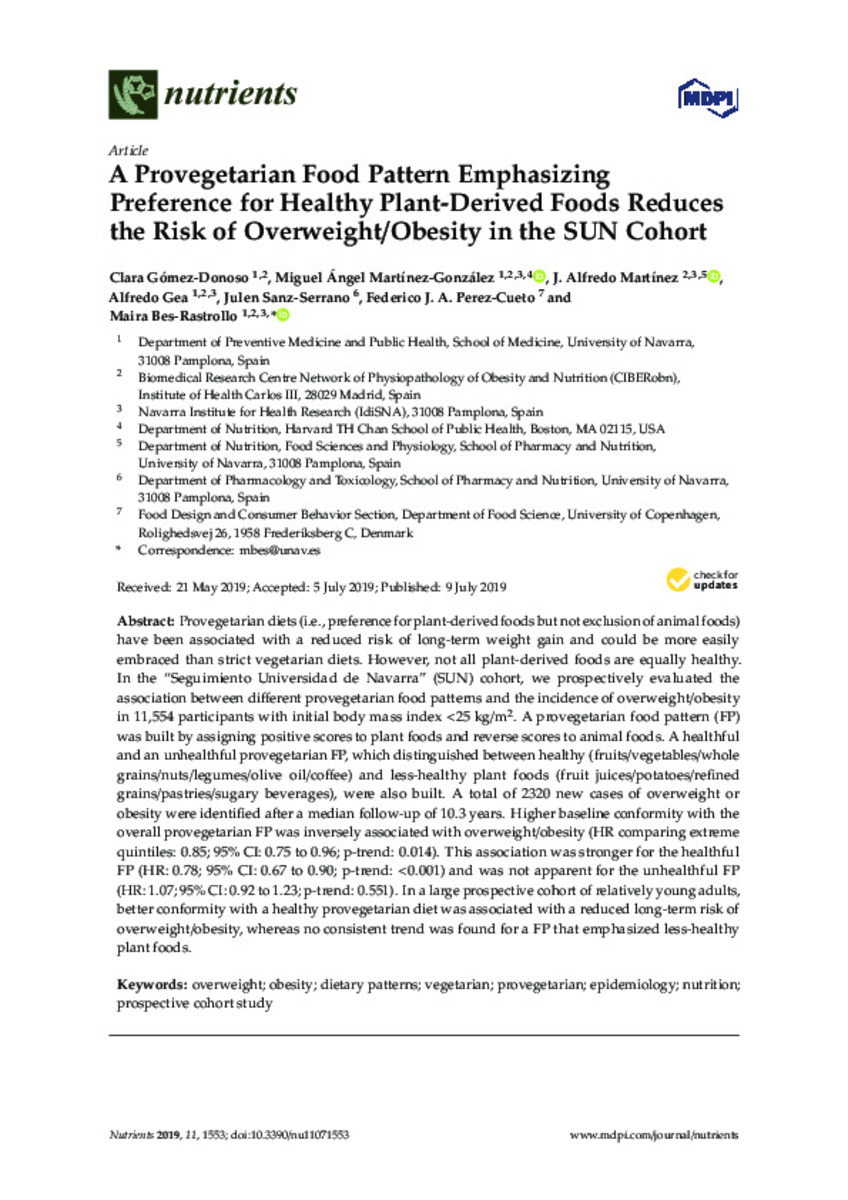A Provegetarian Food Pattern Emphasizing Preference for Healthy Plant-Derived Foods Reduces the Risk of Overweight/Obesity in the SUN Cohort
Palabras clave :
Materias Investigacion::Ciencias de la Salud::Medicina preventiva
Dietary patterns
Epidemiology
Nutrition
Obesity
Overweight
Prospective cohort study
Provegetarian
Vegetarian
Fecha de publicación :
2019
Nota:
This article is an open access article distributed under the terms and conditions of the Creative Commons Attribution (CC BY) license (http://creativecommons.org/licenses/by/4.0/).
Cita:
Gómez-Donoso, C. (Clara); Martinez-Gonzalez, M.A. (Miguel Ángel); Martinez, A. (Alfredo); et al. "A Provegetarian Food Pattern Emphasizing Preference for Healthy Plant-Derived Foods Reduces the Risk of Overweight/Obesity in the SUN Cohort". Nutrients. 11 (1553), 2019, 1 - 17
Aparece en las colecciones:
Estadísticas e impacto
0 citas en

Los ítems de Dadun están protegidos por copyright, con todos los derechos reservados, a menos que se indique lo contrario.








